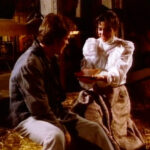For songwriters, seeking feedback from Mom can feel like a mixed bag. While her enthusiasm is unwavering, her musical expertise might be delightfully absent. She’s likely never navigated the complexities of a record label, and her inherent bias towards her child’s creations is undeniable. Even if Mom has mastered the art of gentle critique, that familiar teenage eye-roll and a muttered “you just don’t understand” can shift the guilt, subtly reframing it as a relationship dynamic rather than a song issue.
But in her own way, Mom has a point, a valuable insight for every songwriter wrestling with self-doubt. She listens to your songs not in comparison to chart-topping artists or industry benchmarks, but within the context of who she knows you to be. She embraces the essence of your music, imperfections and all, her support stemming from a place of pure encouragement, simply wanting you to succeed. This unconditional acceptance mirrors the very heart of many Mom Songs – tunes that celebrate unwavering love and belief.
Imagine the creative avenues unexplored, the performances unplayed, the collaborations unpursued, all because of the fear of failure. What if we approached music creation with the assumption of inherent worth, performing for an audience we cherish rather than holding them at arm’s length with apprehension? If each song, flaws and all, were treated as a precious gift, how much more could we learn about the core motivations behind our musical drive? This shift in perspective, embracing imperfection like a mother’s love in mom songs, could unlock new creative potential.
However, declaring oneself a songwriter is inherently vulnerable. While we might be the shining stars in Mom’s eyes, when it comes to extending that same compassion to ourselves, we often transform into our harshest critics. This self-scrutiny is understandable. The music landscape is saturated with talent, constantly producing polished tracks. It’s easy to fixate on our perceived shortcomings. Many songwriters work in isolation, piecing together creativity amidst life’s demands, a stark contrast to our idols operating within established teams and professional support systems.
Songwriting is a craft honed over time, but in the initial stages, our creations can feel disjointed, a Frankensteinian assembly of parts. Chord progressions, melodies, and lyrical expressions might emerge as awkward experiments that seem better left unshared. Yet, with persistent songwriting, a remarkable transformation occurs, often so subtle it goes unnoticed. We begin to internalize the techniques that resonate with successful songwriters. Gradually, beyond mere imitation, we start recognizing our own unique style, a fusion of musical influences and personal expression. This individuality manifests across instrumental choices, vocal nuances, lyrical and musical composition preferences, and even production aesthetics.
It’s crucial to acknowledge that limitations in execution can obscure the complete vision of our songs. It’s akin to encountering someone from a different culture with a language barrier. Nuances might be missed, and understanding feels clouded. Collaboration with skilled musicians – session players, co-writers, or producers – acts as a translator, bridging the gap between raw ideas and polished artistry. These collaborations can elevate ordinary songs to innovative expressions, fostering connection and shared understanding through music.
Many songwriters miss the opportunity to hear their songs within a professional context – rehearsed by a proficient band, sung by a talented vocalist, or recorded with commercial production standards. These experiences are invaluable, clarifying what truly works within a song’s structure and separating the core writing from its execution. This clarity allows for targeted refinement, focusing on strengthening the song itself rather than misattributing weaknesses to vocal delivery or production choices. This access to professional musical environments is a key factor in the accelerated growth of songwriters who have it. It’s not solely about innate talent, but about the exposure to specialized skills that illuminate the multifaceted songwriting and recording process.
But Mom inherently believes in your potential. She sees your unique individuality and trusts that sharing your authentic self will resonate with the world. And in this, she echoes the sentiment of many mom songs: the world needs your unique voice.
Imagine a world without your favorite artist, without that one song that resonates deeply. Personal anecdote aside, artists rarely embark on their musical journeys driven purely by market analysis. Marketing strategies follow art; artists create and promote, carving space for their unique expressions within the market.
While our music’s commercial value might differ from its personal significance to Mom, this discrepancy reflects the current music industry landscape more than the intrinsic worth of our songs. The driving force behind songwriting isn’t financial gain, but an inner spark, a passion that fuels creation. This intrinsic motivation is often celebrated in mom songs, highlighting the value of passion and dreams.
My mother’s unwavering positive responses to my songs have taught me a crucial lesson: I am often too critical of myself. It’s okay to revel in the creative process, to embrace the unique blend of influences and experiences that shape my songs. In fact, it’s the only path to crafting truly original music. Instead of envying others’ skills, I should offer my own unique talents, collaborating to create something novel and unprecedented, imperfections included.
Creation should be a celebration of unleashed creativity, not a judgment of personal worth. Like a mother’s supportive audience, the wider world desires to connect with the authentic experience we bring through our music. Ultimately, both artist and audience seek the same connection. The key is perseverance, honing our craft and embracing our unique artistic identity. Thanks, Mom, for the timeless wisdom, echoing in the sentiment of countless mom songs – just be yourself.
Stay creative,

